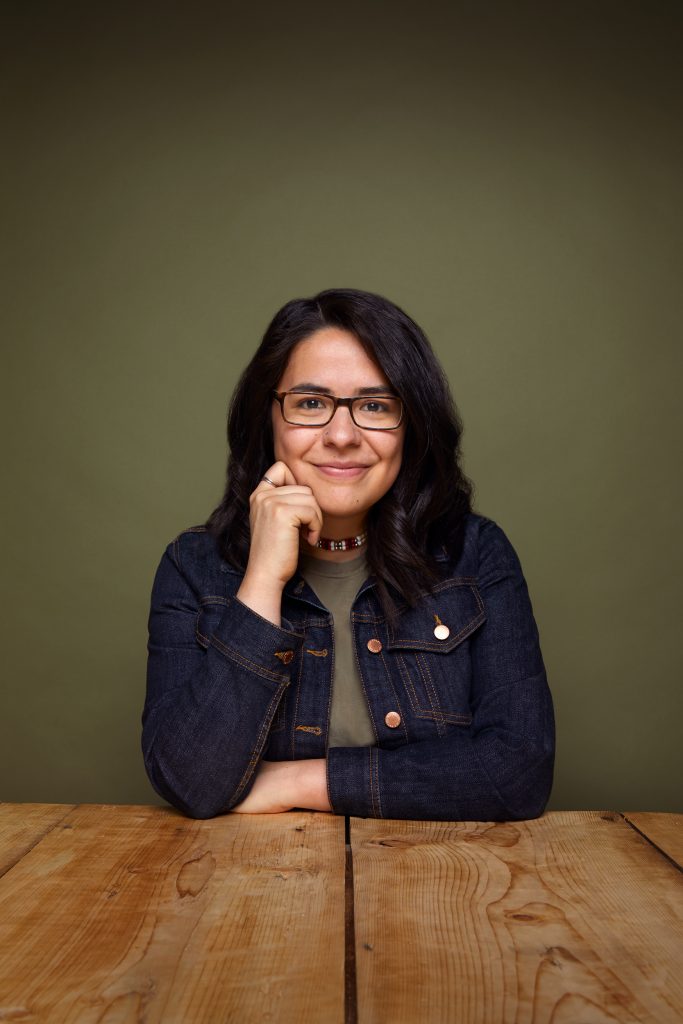Negotiating the Future

In the summer of 1899, my fourth great-great-grandfather Moostoos and his younger brother Kinosew joined other leaders from the surrounding communities to greet newcomers in a large tent a stone's throw from Lesser Slave Lake. Dressed in freshly laundered suits, they then engaged in a long process of negotiating the terms of Treaty 8 in full view of the community that asked them to lead. Despite only Kinosew knowing English, they and the representatives of the Crown reached an agreement that they signed on June 21st, 1899.
These stories, and other snippets from the negotiations of that treaty, were told countless times around my family’s dinner table when I was growing up. They were a source of pride for me, a nêhiyaw girl finding my way in an urban centre.
But it wasn’t until much later that I truly stopped to consider the herculean task put upon my family members a century ago. How had they been so fearless?
"If the stories I heard are right—they were definitely not fearless," my Dad told me when I asked, laughing. "Moostoos' son told quite a few stories of just how aware Moostoos and Kinosew were of the gravity of what they were doing and what it meant. They understood that we, his descendants, were relying on them."
"To get a good deal," I remember agreeing, trying to imagine that kind of pressure.
“More than that,” he said, "to do all they could to safeguard the makings of a good life for us. miyo-pimâtisiwin."
"But what is a good life? It depends on who you ask."
The Good Life
But what is a good life? It depends on who you ask.
For my people, the nêhiyawak, or the people of four parts, we emphasize seeking balance and recognizing our interconnectedness. Discovering the gifts the Creator has given you for the benefit of your community, learning how to use them, and taking the time to remember the great web of life we are all a part of, are what I've learned to be the basis of the good life.
In a study about how other peoples around the world define what it means to live a good life, there were many eye-opening discoveries. One being that Eastern cultures tend to emphasize fulfilling obligations and having the ability to reflect on past failures to avoid future ones, whereas, Western cultures tend to highlight personal success through their various types of individual achievement.
It seems that not only is the blueprint of a good life culturally produced, but also that it’s very far from universal.
A critical commonality among cultures does exist, however. Without stable and safe access to the necessities of life such as food, water, medicine, and housing, communities and the individuals within them struggle to begin their pursuit of a good life.
To provide future generations with these necessities, Mootoos and Kinosew bargained for the right to hunt, fish, and farm, as well as fair and equal access to medicine and education. These items are not the nehiyaw definition of a good life—rather, they are tools that provide us the freedom to pursue it.
Basic Incomes, Not-So-Basic Outcomes
Viewing Basic Income as an emancipatory tool can help us explain why the research completed to date shows that basic income consistently boosts the mental and financial well-being of recipients, and it doesn't provide a disincentive to work. In fact, it either doesn’t affect how many hours people work, or it creates more jobs.
So why the hesitance on the part of policymakers and voters to push for adopting such a scheme? Or at the very least, pilot testing it in their own backyard?
Like so many domains of life within our increasingly multicultural world, it’s likely for the same reason that the last thing the fish sees is the water. So many of us swim in an ocean where a protestant work ethic is believed to be a critical component of a good life, and that compromising it in any way is dooming our communities. It’s so omnipresent that it seems a self-evident truth.
Even I don’t find the idea foreign. Though I pursue, to the best of my ability, the nehiyaw good life, I truly struggle to imagine a future for myself where the majority of my sense of self-worth isn't tied to my work. But I know too many well-adjusted people that feel differently to imagine that my experience is the only correct one.
"How can we, as multicultural communities, make the best decisions possible to safeguard the makings of a good life for those yet to come?"
It's Our Turn
In another time, this question of how to live a good life may have been an idle philosophical one. But as the realities of the effects increasing automation will have on the way we live and work become incontrovertible, it no longer is.
Like Moostoos and Kinosew, a century ago, we have a difficult decision ahead of us. How can we, as multicultural communities, make the best decisions possible to safeguard the makings of a good life for those yet to come? How can we ensure we are being good ancestors, anticipating that the world, as it changes, will change us and how we define what the good life is?
Basic income seems like a tool worth a real and honest conversation.
But for those with lingering doubts, I’ll close with the finding relating to basic income that intrigued me the most: what they discovered about trust. Where policymakers implement basic income, the research shows that trust, not just toward the government but between citizens as well, blooms.
The future is rarely a place we feel confident to venture, but trusting one another definitely seems like a strength we could use as we meet it.
- by Jacquelyn Cardinal


